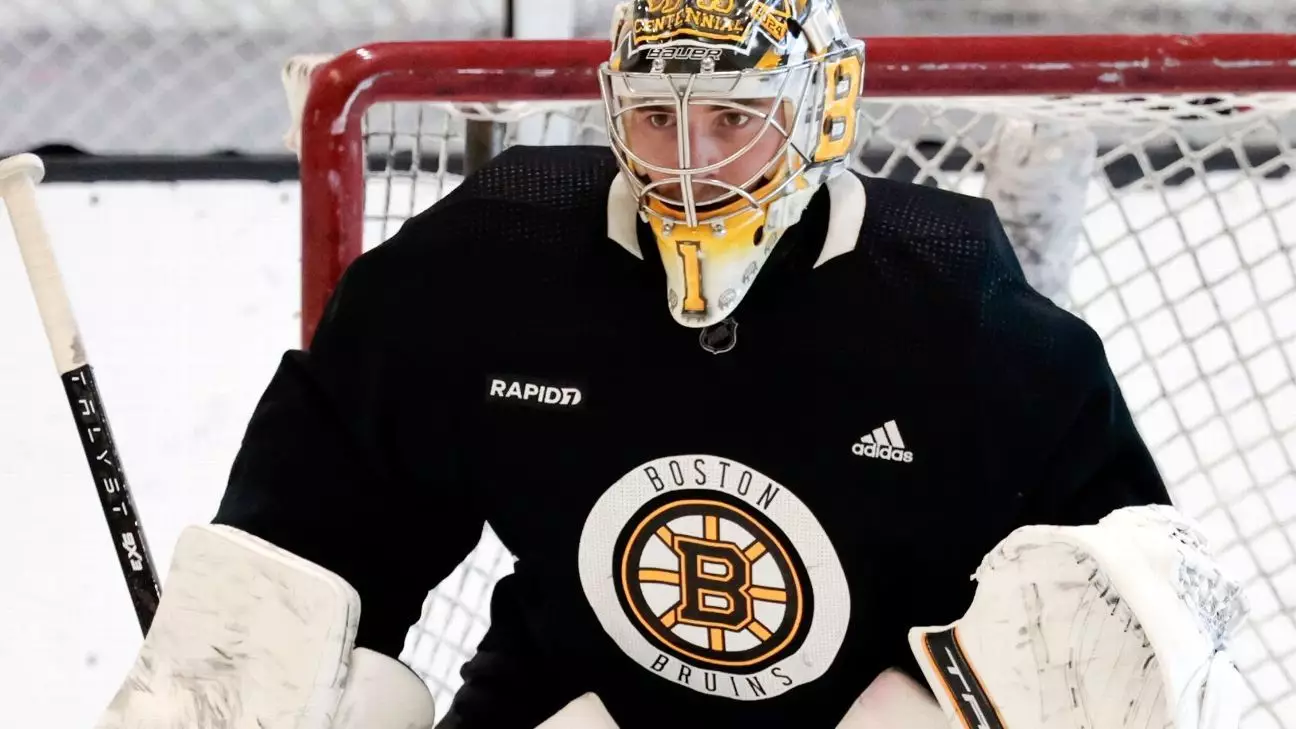The ongoing contract dispute involving the Boston Bruins and standout goaltender Jeremy Swayman has escalated into a public battle, revealing a rift between player and organization. Swayman, a 25-year-old restricted free agent, has chosen to sit out training camp as he seeks a financial agreement that reflects his on-ice value. While the Bruins are aiming to assemble a competitive roster for the upcoming season, they find themselves hamstrung by a predicament that could impact their performance.
General Manager Don Sweeney’s decision to trade Linus Ullmark to the Ottawa Senators has unveiled a gap in the Bruins’ goaltending strategy, putting Swayman at the forefront. The team has openly stated that Swayman is expected to assume a primary role, but that notion appears precarious without a concrete contract. The tension in negotiations became palpable when Bruins president Cam Neely publicly addressed Swayman’s situation during a preseason conference, implying that Swayman’s current demands are unrealistic.
When agents step into the negotiations, the intricacies of the deal often shift into the public sphere, and this situation has proved no different. Lewis Gross, Swayman’s agent, took the unusual step of publicly countering the Bruins’ claims about the contractual terms, emphasizing that the figures discussed by Neely were unfounded. This kind of transparency in negotiations is seldom seen, and it raises questions about the efficacy and professionalism of both parties involved.
Gross’s rebuttal indicates a breakdown in communication—a critical component of any successful negotiation. He suggested that the Bruins misrepresented Swayman’s demands, leaving both the player and team with egg on their faces. In professional sports, trust is paramount; once it erodes, it can lead to long-lasting consequences.
Interestingly, the contract stalemate highlights the pressures that professional athletes face, especially in salary cap leagues like the NHL. As players strive to secure lucrative deals, they often confront the realities of market comparisons and team constraints. In Swayman’s case, it has been suggested that he aspires to become one of the highest-paid goalies in the league, challenging the established hierarchy of goaltending salaries.
Neely’s admission of surprise regarding Swayman’s asking price underlines the diverging perspectives between player aspirations and front-office strategies. In a league where salary caps dictate much of what teams can afford, the Bruins find themselves caught at a crossroads, trying to balance Swayman’s deserved worth against their financial constraints.
The Trickiness of Timing
The timing of Swayman’s demand coincided with a critical moment for the Bruins, who are attempting to build upon last season’s successes. Trading Ullmark ostensibly created a pathway for Swayman to take the reins as a franchise goaltender. However, failing to secure Swayman’s contract before trading Ullmark seems to have been a miscalculation by Sweeney, generating questions about the decision-making process within the hockey operations.
Moreover, the pressure on Sweeney and the rest of the Bruins’ management team is compounded by expectations. With the season opening against the Florida Panthers looming on October 8th, time is of the essence. The lack of resolution leaves the team vulnerable, as they must now rely on Joonas Korpisalo to step up as a potential starter, a risky gamble given that he is still unproven as a primary goaltender.
While the negotiations continue, there is a palpable sense of urgency on both sides. The Bruins need Swayman to maximize their chances of success in an increasingly competitive Atlantic Division. Swayman, on his part, must weigh the risks of not securing a deal against the potential loss of value if he does not produce at a high level this season.
As Swayman remains absent from training camp, the team must navigate the upcoming weeks carefully. The Oct. 1 deadline for Swayman to sign before the contract becomes void for the season looms large. This scenario puts both parties in a tight position—pressure builds as they must reconcile ambitions with realities.
The standoff between Jeremy Swayman and the Boston Bruins encapsulates the complexities of professional sports negotiations. With both sides entrenched in their positions, the potential for compromise remains uncertain, further complicating the Bruins’ quest for a championship-caliber roster. As the clock ticks, the need for resolution has never been more critical.


Leave a Reply